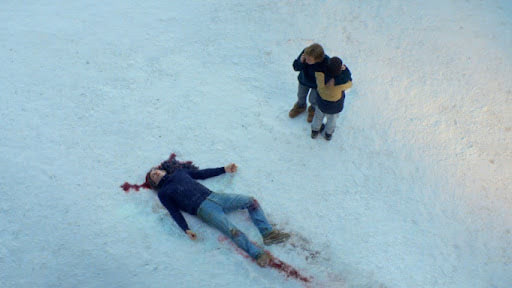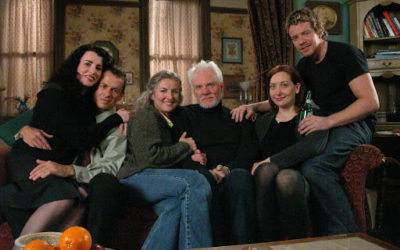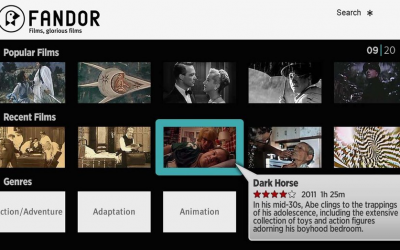Source: Variety
Yet another Cannes Film Festival has come and gone, and with it, a whole new slew of films revered by those fortunate enough to attend the twelve-day event being honored with at least one of the many prestigious awards that could be handed out by the festival’s various juries. Before the 76th Cannes Film Festival officially wrapped up on May 27th, 2023 (having begun several days earlier on May 16th), many of its top prizes were awarded to those films that the jurors determined to be the most exceptional of those that had been submitted and approved for theatrical exhibition at some point during the nearly-two-week event. Of the juries to have a say in which films are most deserving of the festival’s accolades, it’s the Main Competition jury that perhaps holds the greatest significance, as it’s they who decide which film is most worthy of the Palme d’Or, the Cannes Film Festival equivalent of a Best Picture award and the highest honor it can bestow. With this year’s Main Competition voters including actress Brie Larson, actor Paul Dano, and this year’s Jury President, director Ruben Ostlund (who had won the previous year’s Palme d’Or for his film “Triangle of Sadness”) among many others, there’s no denying that this year’s Main Competition jury is a fitting embodiment of what it means to be a quality work of cinema. If the films they’ve selected to win the Palme d’Or and the other Main Competition awards are any indication, they have more than lived up to this reputation.
Taking this year’s Palme d’Or award was “Anatomy of a Fall”, a French legal thriller by director Justine Triet. Featuring Sandra Huller in the lead role of a writer attempting to prove her innocence after she is accused of murdering her husband, the film has enabled Triet to become only the third woman director to create a Palme d’Or winning film, following in the footsteps of Jane Campion’s 1993 film “The Piano” and “Titane” director Julia Ducournau, who had won the award just two Cannes festivals prior and joined Ostlund and the others as a Main Competition juror for this year’s event. While presenting the award, actress Jane Fonda commented on the presence of seven women directors whose films competed for this most recent Palme d’Or, the most of any Cannes Film Festival up to that point, and acknowledged how far the event has come in striving for greater gender inclusivity since Fonda first attended the festival several years ago. Triet, however, used her acceptance speech to discuss a different subject matter, speaking out in support of the ongoing protests against pension reform currently taking place in the French nation, even though festival rules strictly forbid talk of such issues in acceptance speeches.
In addition to being one of this year’s Main Competition jurors, Ducournau also presented the Grand Prix award, the second most prestigious Cannes prize after the Palme d’Or. Winning this year’s Grand Prix was “The Zone of Interest”, a German-language co-production between Poland, the United Kingdom, and the United States directed by Jonathan Glazer. In adapting the novel of the same name from Martin Amis (who had sadly passed away midway through the Cannes Film Festival), the film provides a disturbing insight into the life of a Nazi commandant who executed several Jewish people while stationed at the Auschwitz concentration camp. Though the film keeps the majority of these atrocious crimes off-screen throughout most of its running time, those who saw the film can attest to how well it conveys such horrors nonetheless. While it’s hard to say what played the biggest role in earning Glazer’s period drama the Grand Prix – some voters may have been swayed by the film’s daunting subject matter, others may have wanted to pay tribute to the recently deceased writer of its source material – but either way, hardly anyone can say that the film is unworthy of at least some award recognition.
In addition to the primary Palme d’Or and Grand Prix awards, the Main Competition jury also awarded two actors with their respective Best Actor and Best Actress prizes. The former was handed out to Japanese actor Koji Yakusho for his performance in Wim Winders’ “Perfect Days”, a co-production between Winders’ native Germany and Yakusho’s native Japan that sees him playing a working-class man who cleans toilets during the morning hours of each day and spends the rest of it observing the surrounding city of Tokyo and the people within. Merve Dizdar, an actress hailing from the nation of Turkey, was meanwhile honored with the Best Actress award for her performance in Nuri Bilge Ceylan’s drama “About Dry Glasses”, in which she plays a schoolteacher living in rural Turkey who accuses another teacher, the film’s chief protagonist (played by Deniz Celiloglu) of abusing a student.
When the time came to give out the award for Best Screenplay, it was Yuji Sakamoto who accepted the prize for writing the script for Hirokazu Kore-eda’s drama “Monster”, which revolves around a mother who notices her son engaging in some troubling activity and ends up confronting his teacher in order to figure out what’s actually going on. The film had also been fortunate enough to win the Queer Palm, an independent Cannes prize designated specifically for films that discuss LGBT subject matters, making it one of the few competing films to win multiple awards at this year’s Cannes festival (even if it was only nominated for the main Palme d’Or). The award for Best Director, meanwhile, went to Tran Anh Hung for his historical romance drama “The Pot-au-Feu”, a film set in 19th century France and focuses on the blossoming relationship between two chefs who bond over their shared passion for cooking. As he took to the stage to accept the award, Anh Hung amusingly used his acceptance speech to thank his wife, then “correcting” himself by referring to her as his “cook”.
Finally, there is the last of the Main Competition awards, the Jury Prize, which this year went to the Finnish comedy-drama “Fallen Leaves” by director Aki Kurismaki. Described as a love story between two strangers brought together by a series of radio dispatches from the war in Ukraine, the film bears the kind of compelling narrative that just about anybody can find some interest in, making it an ideal candidate for the Jury Prize and allowing it to stand proudly among the various other films that the Cannes Film Festival has deemed worthy enough to receive at least one of its many prestigious accolades.




